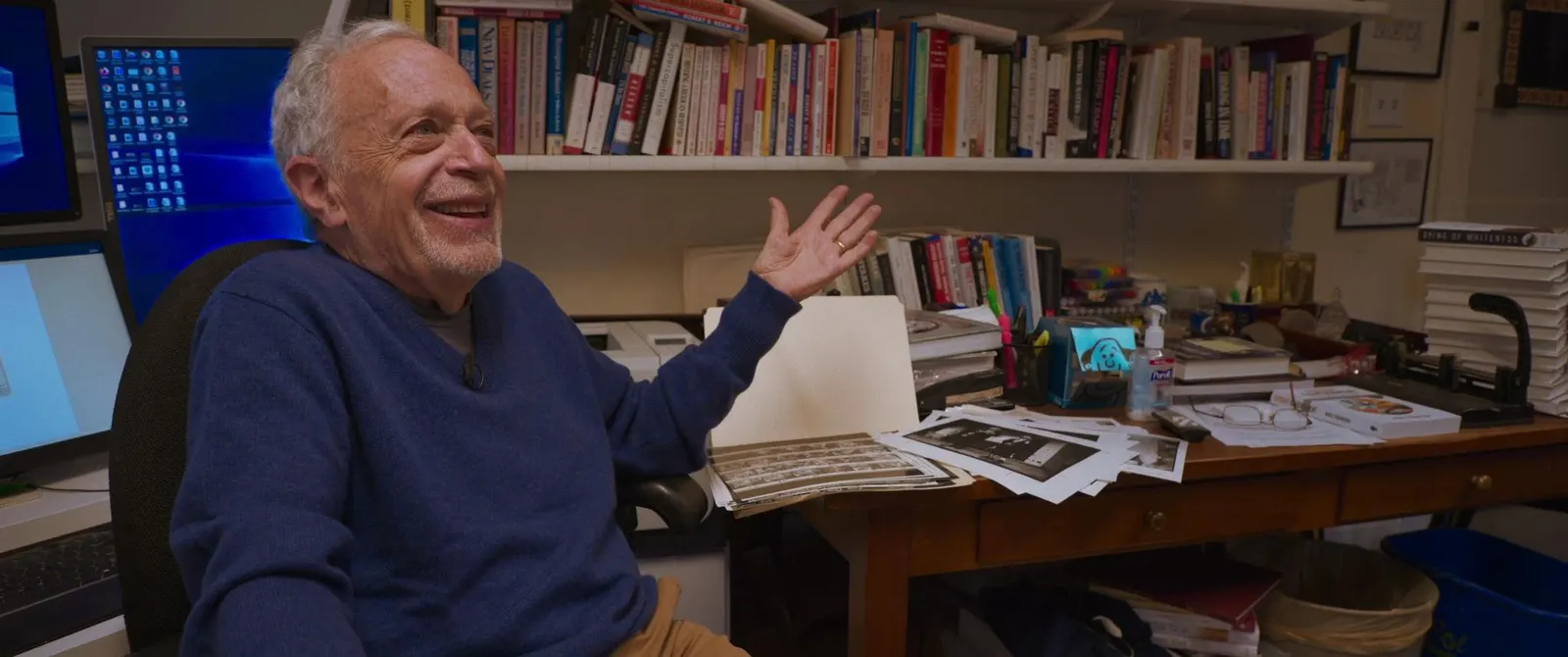By Contributor Lucie Lapovsky
ROBERT REICH IN HIS OFFICE
THE LAST CLASS
I had the pleasure of a wide-ranging conversation on June 23 with Robert Reich, economist, lawyer, professor, and former Secretary of Labor. In it he offered a passionate defense of higher education in the United State while also issuing stark warnings about the challenges higher education faces from within and without.
Reich, who has taught over 40,000 students since 1981 at Harvard, Brandeis and UC Berkeley, reflected on the joys and responsibilities of teaching, the importance of civil discourse, and the existential threats facing American higher education. “Ignorance is the handmaiden of tyranny,” he emphasized. “A well-educated population does not submit easily to tyranny.”
The movie, The Last Class, which premiered on June 27, speaks to many of these issues in more detail and also shows his exemplary teaching style.
The Value—and Vulnerability—of American Higher Education
Reich expressed grave concern about what he called a “direct assault” on U.S. higher education today. “Higher education is the crown jewel of our competitiveness,” he said, “our research universities are a core strength.” Cuts to federal research budgets and efforts to discourage international students from studying in the U.S., he argued, are not only shortsighted but self-destructive. “We’re shooting ourselves in the foot,” he warned. “Higher education must be valued, nurtured, and prized, not dumped on.”
He noted that populist anger may find satisfaction in undermining elite institutions, but doing so endangers the nation’s long-term prosperity and global leadership.
Civil Discourse and Freedom of Thought
MORE FOR YOU
Reich remains a fierce advocate for robust dialogue in the classroom. “The best way to
Teaching a class at Berkeley
The Last Class
learn is to talk with someone who holds a different point of view,” he said. But he also acknowledged the difficulty of maintaining genuine ideological diversity in many universities, which he described as being “culturally afraid of going beyond conventional understandings.”
He emphasized that universities should welcome disagreement, especially when grounded in facts and teach students to critically test ideas. “Not enough diversity of viewpoint exists,” he said. “Universities must help students develop critical skills, take arguments and rip them apart.”
The Challenges of Faculty Culture and Teaching Assessment
Reich also addressed concerns about aging faculty and the lack of accountability in academia. He argued that faculty should periodically ask themselves: “Can I still do what I’ve been doing at the level students deserve?” For Reich, continuing to teach without being able to do that would compromise both self-respect and student learning; thus he decided to step down from teaching last year.
He was particularly critical of how little universities value teaching but acknowledged that we don’t have good measures of teaching quality. “Student evaluations are notoriously unreliable,” he said. “They often conflate popularity with actual learning.” He suggested that alumni—especially those five years post-graduation—might provide more accurate assessments of faculty impact. “Departments must not overemphasize research at the expense of teaching,” he added, calling for better comparative metrics that emphasize quality instruction.
Rethinking the Role of College
While Reich champions the university system, he also called for a broader reevaluation of the American education pipeline. “It’s absurd to assume that a college degree is the only pathway to the middle class,” he said. Vocational training and community colleges must be given greater respect and support: “community colleges are the unsung heroes.” He praised institutions like Berkeley, where 30% of students come from community college transfers, creating meaningful diversity and opportunity.
A Call to Defend—and Reinvent—Higher Education
Reich’s final message was one of both alarm and hope. Higher education, he argued, is under threat not just from external political forces, but also from internal complacency and rigidity. Yet it remains a vital institution for cultivating informed citizens and a functioning democracy.
“American politics is broken,” he observed, “in part because politicians spend too much time raising money and too little time supporting the institutions that sustain democracy.”
Editorial StandardsReprints & Permissions
